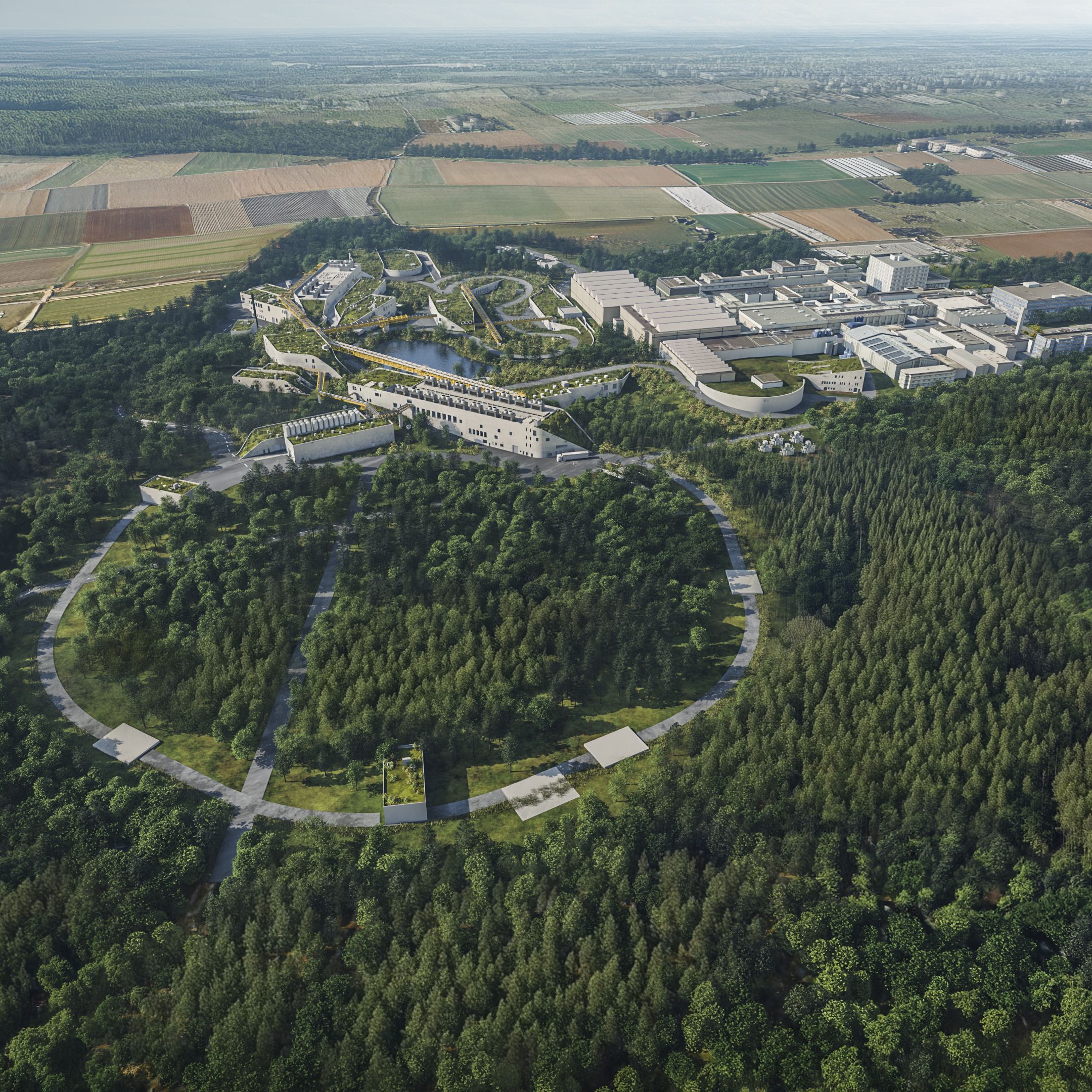Understanding matter, shaping the future: At the GSI Helmholtz Centre for Heavy Ion Research, cutting-edge particle accelerators are used to explore the fundamental components of matter and to develop new technologies for science, medicine, and industry.
From the smallest to the largest: HIDA's mobility programs offer data science talents the opportunity to investigate fundamental questions about matter at GSI—bringing us closer to understanding the universe.

About the Helmholtz Association
The Helmholtz Association
The Helmholtz Association is Germany’s largest scientific organization. Our cross-cutting research programs connect the 18 Helmholtz research centers.
Each center has its own scientific focus areas and infrastructures. The research is thematically structured into six fields:
- Energy
- Earth & Enviroment
- Health
- Information
- Aeronautics, Space & Transport
- Matter
The GSI Helmholtz Centre for Heavy Ion Research in Darmstadt operates a large, unique ion accelerator facility used by researchers from around the world to gain new insights into the structure of matter and the evolution of the universe—from the Big Bang to the present. Additionally, they develop novel applications in medicine and technology.
Currently, GSI is constructing the new international accelerator center FAIR (Facility for Antiproton and Ion Research), one of the largest and most complex construction projects for international cutting-edge research. FAIR will provide particle beams with unprecedented intensity and quality. The facility comprises an underground ring accelerator with a circumference of 1,100 meters, storage rings, and experimental stations with several kilometers of beamlines.
Research priorities:
- Nuclear and hadron physics
- Atomic and plasma physics
- Particle therapy and biomedical research
- Materials science under extreme conditions
- Development of new accelerator technologies
- Data science and simulations in physics

The sites
The sites
The GSI Helmholtz Centre for Heavy Ion Research operates one of the world's leading particle accelerator facilities for research in Darmstadt.
GSI's expertise in the field of Data Science and AI
GSI employs state-of-the-art data-driven methods to analyze highly complex physical processes. Innovative simulation models and algorithms are developed for experiments to better understand the interactions between heavy ions and matter.
The use of powerful AI models and big data analyses enables the processing of large volumes of experimental data, leading to new insights into the structure of matter and advancing technological applications. Interdisciplinary teams collaborate through the cross-group AI Working Group to explore the use of AI-based systems at GSI. AI Applications at GSI include:
- AI-supported analysis of high-energy particle collisions
- Automated pattern recognition in experimental data (e.g., mass spectra)
- Machine learning for optimizing particle accelerators
- Development of simulation models for plasma physics and nuclear processes
- Multimodal data integration to enhance experimental precision
Approximately 1,520 people are employed at GSI. Additionally, around 1,000 guest researchers from around the world use the facility for experiments each year.
Application
Would you like to conduct research and work at Helmholtz Munich? Then apply now for the HIDA Mobility Program!
Please contact your potential supervisor by email before applying to propose and discuss a research project. Only submit your application after this has been clarified.
You can find more information about the application requirements here.
Note for external applicants:
If you have any questions about application formalities or organizational procedures, please contact your home institution directly.
The Hosts at GSI
Currently, there are no official host supervisors available at this Helmholtz Center as part of the HIDA Mobility Program.
However, you are welcome to independently search for a suitable host supervisor at HZI and coordinate a potential research stay as part of the program.
If you have any questions, please send an email to: hida@helmholtz.de
Are you interested in becoming a Helmholtz host yourself and looking for support for your research project?
Then please also contact the above-mentioned email address.



